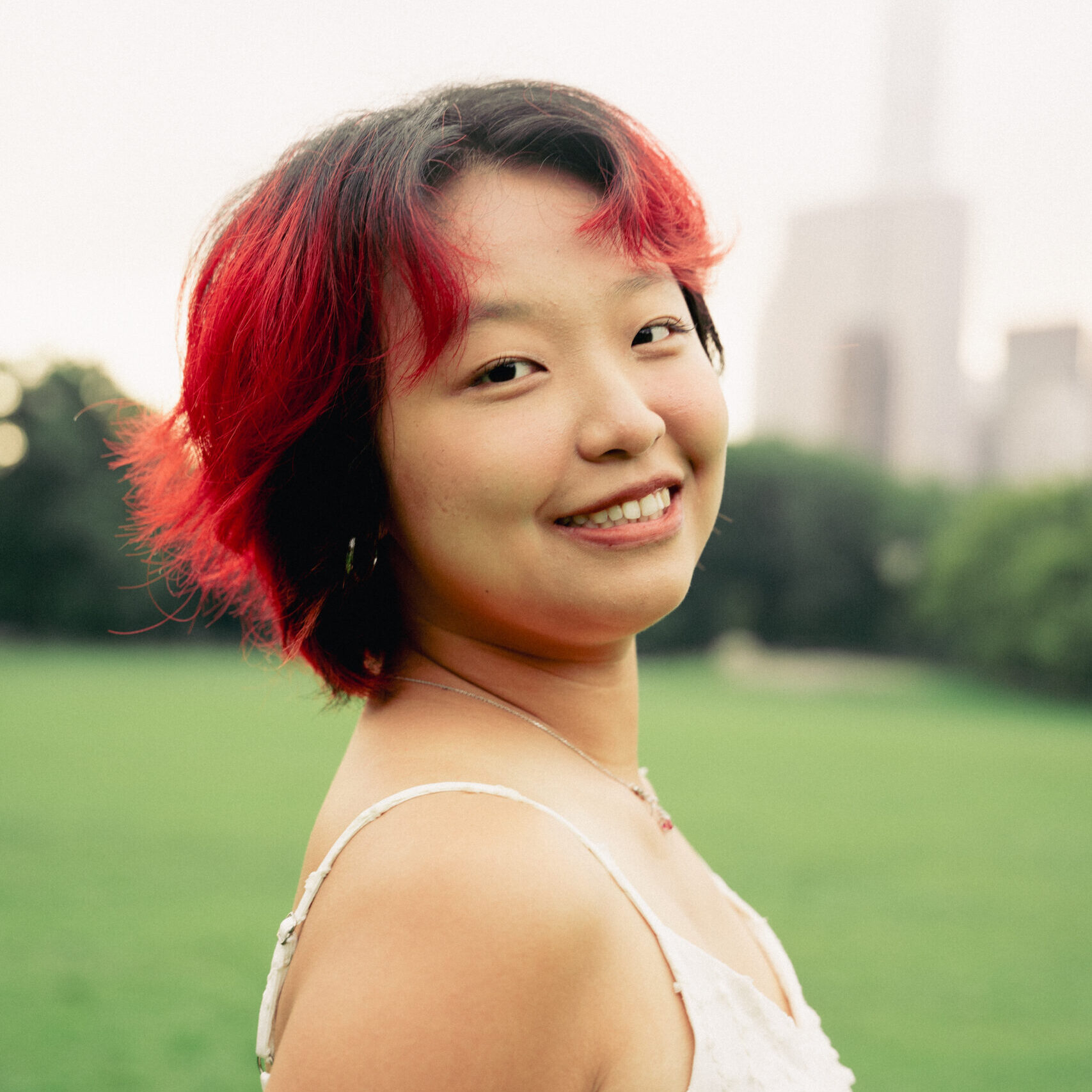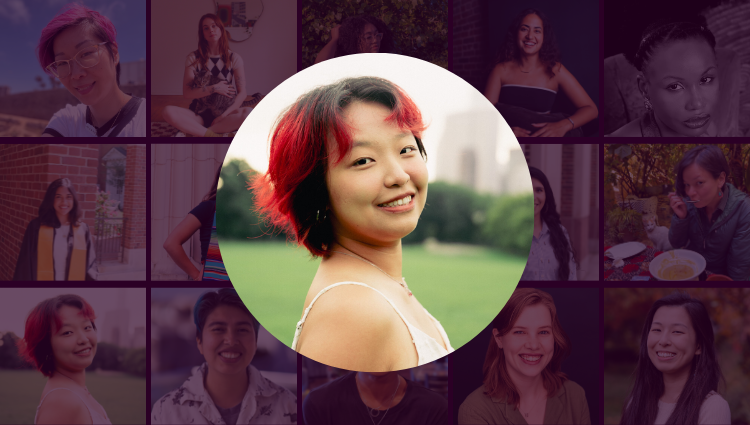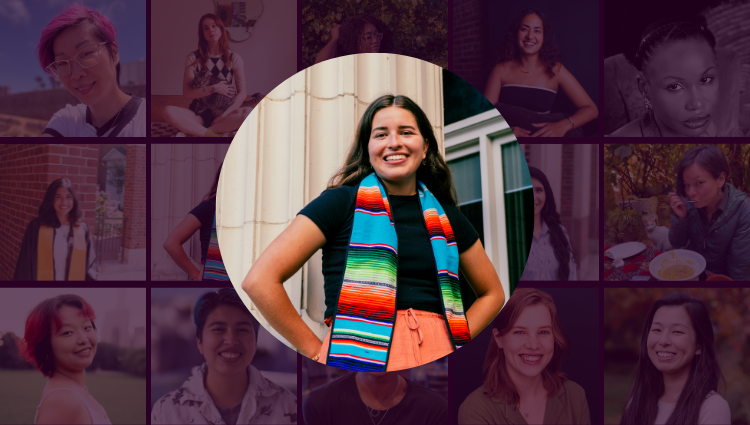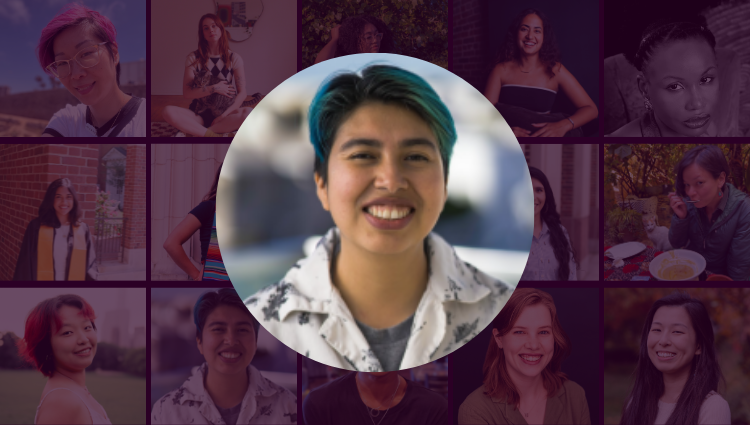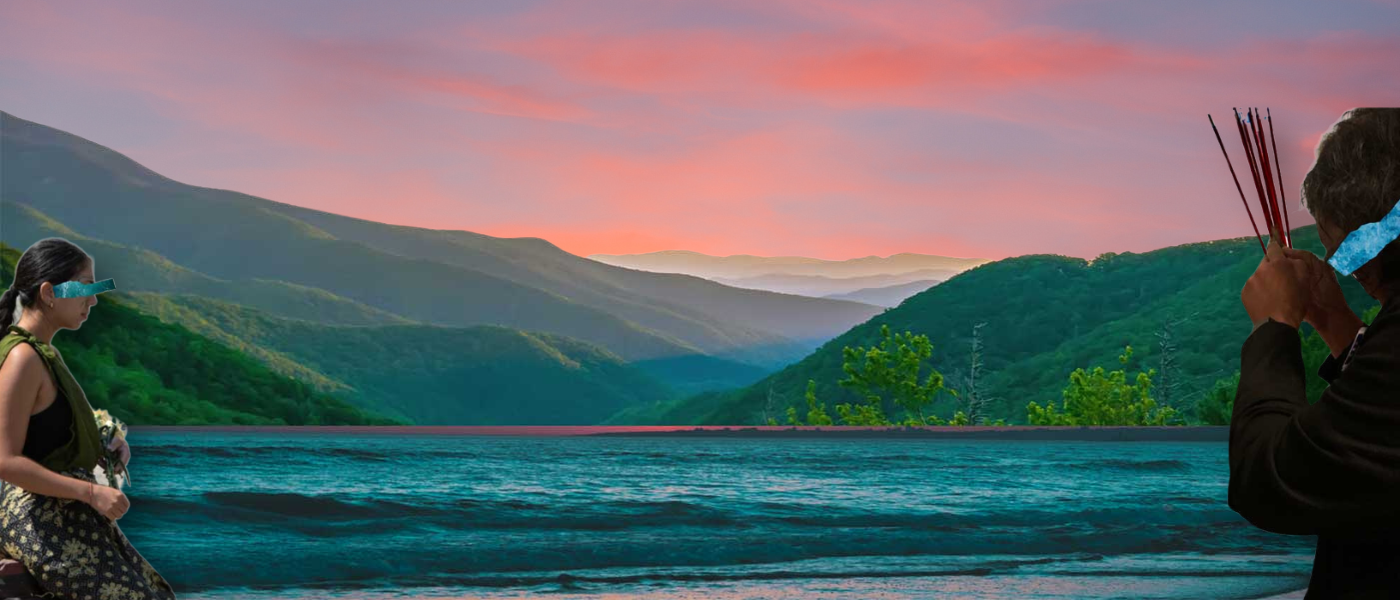huiyin zhou was one of our 2024 Digital Residents. As a part of this program, we do Q&As with our residents to feature them, their work, and their words. See our Q&A with huiyin below, and explore more Spotlights here.
TSW: Tell us about your work, writing, or project. What are you writing these days? How is your work changing, and how is it changing you?
huiyin zhou: I work with text, image, performance, and installation in conversation with my community, particularly from a queer feminist ethics/aesthetics of care, kinship, and intimacy.
For the past few years, I have been writing an activist journal, jotting down conversations I have with other artists and community organizers and reflections on social movement building and healing.
When words can’t come to me, I write with photos. I love taking 35mm film pictures at community gatherings, potlucks, and hangouts with friends, especially candid photos of laughter. I love making polaroids and having people sign on the edges with an oversized sharpie. I write into the memories captured by the light on film and the unpredictable gaps between taking and developing an image, often journaling on my photo prints and gallery walls.
Letter writing is a liberating practice I recently returned to. In 2023, my creative collaborator Laura and I began writing letters to each other – to process grief, joy, and dreams when many things felt out of our control. It is a fluid and sacred space we can return to, knowing that what we share will be gently held and tended to by the receiving person. We often write in our journals, on notepads from conference hotels, on polaroids and photos we took of one another. Splitting our time across different coasts and oceans, we also often write on ferries, planes, taxis – suspended spaces of transit, (im)mobility, and policing.
In these letters, we often share our dreams and nightmares. These stories in the most uncensored realm — often of ancestors, chosen family, friends and strangers at once far and close — speak to our intuition, deepest fears and desires, solidarity and complicity, and ancestral knowledges that have been denied from us. There were many letters that began but never finished, and many others that will keep beginning, channeling spells of healing, transformation, and mutual witnessing.
In this digital age, I find myself writing on instagram “close friends” stories and notes apps often when a sudden desire or idea gushes through my body. I write in bullet points on untitled google docs and canva designs. I am also writing funny and vulnerable texts with friends, sending/receiving voice notes about random observations on grocery runs, and recording voice memos about fantastical dreams that end up being hours-long documentation of me breathing as I keep falling back asleep.
TSW: What were you processing during our residency program? Did anything unlock for you? If so, what new entrance did you find for your work or for yourself as a writer in the world? And what caused that shift?
HZ: As a community organizer often involved in crisis-response work, I am always compelled to ask: What does my writing do for the community? How does what I co-create with others weave into a larger fabric for cultural change? However, constantly putting myself in that position puts a lot of pressure on writing. It felt like I could never just write, to have messy drafts, to play and have fun. There’s also a lot of pressure in progressive spaces to prove a point and defend one’s righteousness, in a state of reactiveness and often trauma response.
Through the process-based writing exercises, conversations with fellow residents and camaraderie we fostered throughout the program, I was able to preserve more space for creating without the need to present, perform, or educate. I’ve come to realize that I need to be more protective of my work, and that writing itself is inherently meaningful. Breathing, existing, and building community with others are all part of creative practice, even if I’m not “producing” a tangible, publicly available piece of writing. Sometimes the most intimate and powerful work lies in the things that remain private and inaccessible for public gaze. I deserve and need to honor that interior space of slowness and safety.
TSW: What’s a mantra or motto that you have in mind these days when you are writing or creating? Is there a writing routine or ritual that keeps you beginning?
HZ: I keep reminding myself that I am creating for and with myself and my loved ones.
There are so many internalized restrictions and industry standards that constantly cause me to doubt myself, especially as a queer migrant artist living with the pressures to prove the validity of my existence for immigration purposes. I sometimes grapple with a sudden surge of existential fear that I’m not doing it “right,” that my work is not “good enough.” Despite being aware that these feelings of undeservedness and inadequacy are institutionalized by structures of power that we live under, it’s still always a back and forth battle.
Creative practice is a hard endeavor especially when done with persistence, but it is not something that exists above daily life. When I feel overwhelmed, I return to my daily rituals of care and grounding: taking walks around my neighborhood, doodling on my journals, writing about a weird dream, and sharing three good things that happened today with my partner. It could be the shadow of a random tree, the early morning bird chirps outside the window. It could be an intimate, emotional moment too sacred for the camera’s gaze. Sometimes it’s a funny text or sweet letter from a friend, or the way their cheeks soften while laughing at a joke. It’s these mundane moments of beauty and connection with myself, loved ones and the earth that fuel my creativity and my very existence. My creative practice is always a gift and love letter to all that nourishes me, and the love we co-create can never be taken away from me.
TSW: What motivates you to keep beginning, and/or, what is a story that gave you permission to tell yours? Feel free to tell us what’s on your bookshelf or TBR list these days.
HZ: Recently Read:
- Parable of the Sower by Octavia Butler
- Martyr! by Kaveh Akbar
- Postcolonial Love Poem by Natalie Diaz
To Be Read:
- Gaza Writes Back: Short Stories from Young Writers in Gaza, Palestine, Edited by Refaat Alareer
- The Dispossessed by Ursula Le Guin
- Emergent Strategy by adrienne maree brown
- Undrowned by Alexis Pauline Gumbs
- echolalia echolalia by Jane Shi
- Memory for Forgetfulness by Mahmoud Darwish
- Babel by R.F. Kuang
- We Both Laughed in Pleasure: The Selected Diaries of Lou Sullivan
TSW: What is something that someone said — a fellow resident, a past mentor, perhaps something from one of the bonus sessions — that helped change the way you see your writing or work?
HZ: “Be your own vulture!” from K-Ming Chang’s bonus session really stuck with me. I appreciated Chang’s open sharing the importance of lowering barriers of entry into writing for oneself, and being compassionate about the ever-evolving nature of our work and being. I realized that I had not allowed myself to frolic and fail and have been more intentional about finding the joy of being an amateur at something. Recently, I’ve been writing some poems in Chinese (my native language) and enjoying the expressive freedom from high expectations.
